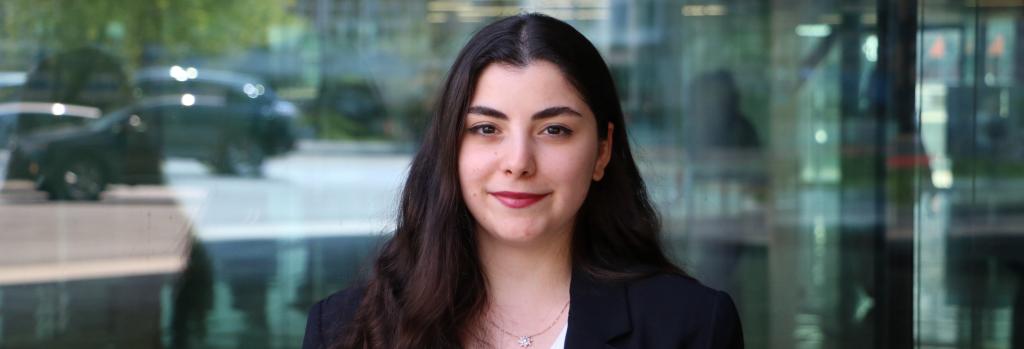You are in the “Gender, Race, and Diversity” track of the MINT programme. What are you focusing on for your thesis?
My Master thesis titled “A Care Approach to Women, Peace and Security Mainstreaming Campaign in the Human Rights Council” investigates the relations, practices and values of care shared in the Women Peace and Security (WPS) networks in International Geneva, with a particular focus on emerging WPS mainstreaming efforts in the UN Human Rights Council. My thesis supports the argument that shared care and feminist commitment to the WPS agenda sustains efforts to advance the agenda globally, even in the absence of necessary funding and accountability mechanisms. It illustrates the care approach to the agenda in the WPS networks in Geneva, mainly demonstrating the potential contributions of care and connectivity between different actors and the common goal of institutionalising the agenda in the human rights mechanisms in Geneva.
You are doing an internship with the Women’s Participation Project, which is dedicated to developing displaced women’s roles in campsites, allowing them autonomy and thereby diminishing gender-based violence. Can you tell us about the importance of this work and how it ties into your studies?
The Women’s Participation Project implemented by the IOM aims to raise women’s agency and participation in the camp management structures in the aftermath of disasters and displacement. The project connects feminist approaches to development with humanitarian practice by highlighting the gendered power dimensions in different displaced communities and the importance of integrating women’s perspectives and needs in the camp sites. In this sense, the project also relates to my Master thesis research on the Women, Peace and Security agenda owing to its specific emphasis on women’s participation and protection in the aftermath of armed conflicts and disasters.
Before coming to Geneva, you were involved with the We Need to Talk Association, addressing period poverty in Turkey – can you tell us more about the work that you did and what you took away from it?
My work with We Need To Talk was my first encounter with the feminist politics and advocacy in my professional career. As the project coordinator, I led two initiatives. The first, “Menstrual Awareness Series" involved fieldwork with adolescent girls and produced Türkiye’s first comprehensive research on period poverty and stigma. The second, "Pad Sisterhood," coordinated the donation of over 1.2 million hygienic pads to around 35,000 menstruators in Türkiye. My experience with We Need To Talk helped me realise the importance of talking about the stigmas in society, not only with fellow feminists, but also with people who don't know about periods and don't have the means to learn about them. Together, we worked collectively to break these stigmas by opening conversations in safe spaces.
Interdisciplinarity is at the heart of the MINT programme — What disciplines drew you to the programme and which ones do you find that you most apply to your projects?
My specialisation in the MINT programme, Gender, Race and Diversity, was my main motivation for applying to the programme due to its intersectional approach to international development and security as well as gender and race studies. I was able to bring together and learn from different fields by attending various classes on gender and development, diversity in peacebuilding, queer studies along with others, and engaging with colleagues from different programmes. I believe that gaining different perspectives on gender, development and security issues has helped me to cultivate in these areas in my previous and ongoing projects.


